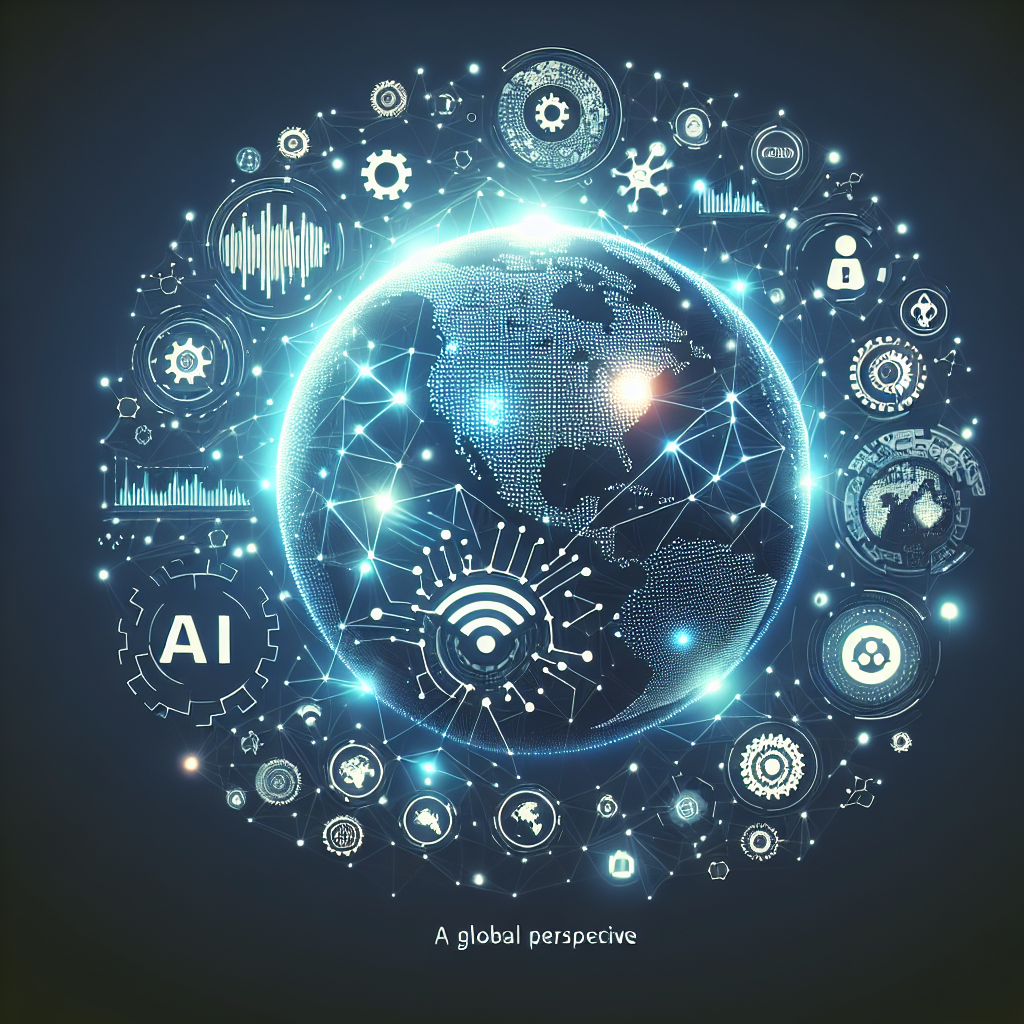The Democratization of Artificial Intelligence: A Global Perspective
Artificial intelligence (AI) has emerged as a transformative technology that has the potential to revolutionize industries, improve efficiency, and drive innovation. However, the development and deployment of AI have historically been concentrated in the hands of a few major tech companies and research institutions, leading to concerns about the democratization of AI and access to its benefits.
In recent years, there has been a growing movement towards democratizing AI, with governments, organizations, and individuals around the world working to ensure that the benefits of AI are accessible to everyone. This global perspective on the democratization of AI highlights the key trends, challenges, and opportunities in this rapidly evolving field.
Trends in the Democratization of AI
One of the key trends in the democratization of AI is the increasing availability of AI tools and platforms that make it easier for individuals and organizations to develop and deploy AI applications. Platforms such as Google Cloud AI, Microsoft Azure AI, and Amazon Web Services AI are making it easier for developers to access AI tools and services without the need for extensive technical expertise.
Another trend is the rise of AI education and training programs that are helping to bridge the skills gap in AI and empower individuals to develop AI applications. Organizations such as Coursera, Udacity, and edX offer online courses and certifications in AI, machine learning, and data science, making it easier for individuals to acquire the skills needed to work in the field of AI.
Governments around the world are also taking steps to democratize AI by investing in AI research and development, supporting AI startups, and promoting AI education and training. Countries such as China, the United States, and the European Union have launched national AI strategies to drive innovation and economic growth through AI.
Challenges in the Democratization of AI
Despite the progress that has been made in democratizing AI, there are still significant challenges that need to be addressed. One of the key challenges is the lack of diversity and inclusion in the field of AI, with women and minority groups underrepresented in AI research and development.
Another challenge is the ethical implications of AI, including issues such as bias, privacy, and security. As AI becomes more pervasive in society, there is a growing need to address these ethical concerns and ensure that AI is developed and deployed in a responsible and transparent manner.
Access to data is another challenge in the democratization of AI, with many organizations lacking the data needed to train AI models effectively. Governments and organizations need to work together to address data privacy and security concerns and promote data sharing to enable the development of AI applications.
Opportunities in the Democratization of AI
Despite the challenges, there are also significant opportunities in the democratization of AI. One of the key opportunities is the potential for AI to drive economic growth and create new job opportunities. AI has the potential to transform industries such as healthcare, finance, and transportation, leading to the creation of new jobs and the growth of new businesses.
Another opportunity is the potential for AI to address some of the world’s most pressing challenges, such as climate change, poverty, and healthcare. AI can help to analyze complex data, identify patterns and trends, and make predictions that can help to inform decision-making and drive positive social change.
The democratization of AI also presents opportunities for collaboration and partnership between governments, organizations, and individuals around the world. By working together, we can harness the power of AI to drive innovation, improve efficiency, and create a more inclusive and equitable society.
FAQs about the Democratization of AI
Q: What is the democratization of AI?
A: The democratization of AI refers to the movement to make AI accessible to a wider range of individuals and organizations, enabling them to develop and deploy AI applications.
Q: Why is the democratization of AI important?
A: The democratization of AI is important because it can help to drive innovation, improve efficiency, and create new job opportunities. By making AI more accessible, we can ensure that its benefits are available to everyone.
Q: What are some examples of AI tools and platforms that are helping to democratize AI?
A: Examples of AI tools and platforms that are helping to democratize AI include Google Cloud AI, Microsoft Azure AI, and Amazon Web Services AI. These platforms make it easier for developers to access AI tools and services without the need for extensive technical expertise.
Q: What are some of the key challenges in the democratization of AI?
A: Some of the key challenges in the democratization of AI include the lack of diversity and inclusion in the field of AI, ethical concerns such as bias and privacy, and access to data needed to train AI models effectively.
Q: What are some of the key opportunities in the democratization of AI?
A: Some of the key opportunities in the democratization of AI include the potential for AI to drive economic growth, address social challenges, and promote collaboration and partnership between governments, organizations, and individuals.
In conclusion, the democratization of AI is a global movement that holds the potential to drive innovation, improve efficiency, and create new job opportunities. By addressing challenges such as diversity, ethics, and data access, and embracing opportunities for collaboration and partnership, we can harness the power of AI to create a more inclusive and equitable society.

